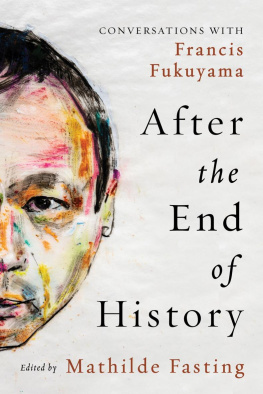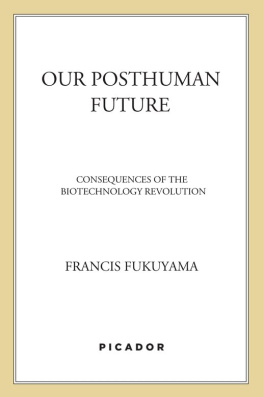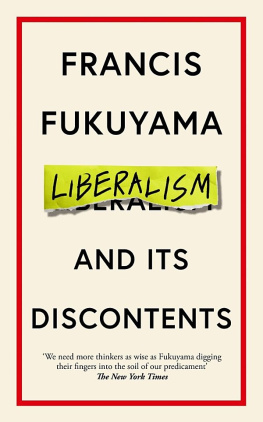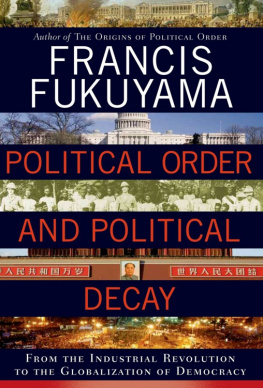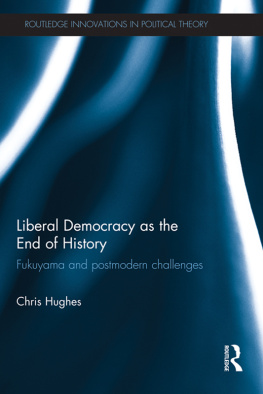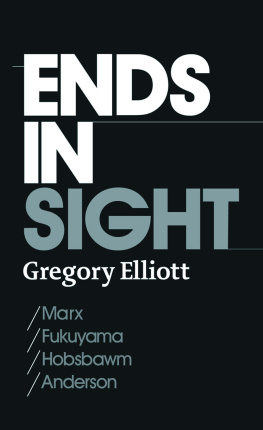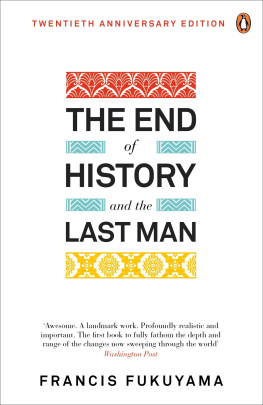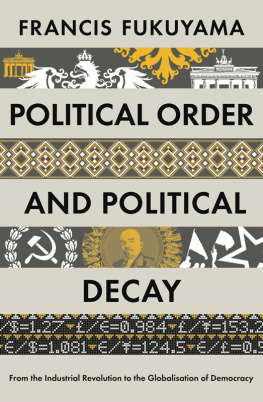2021 Georgetown University Press. All rights reserved. No part of this book may be reproduced or utilized in any form or by any means, electronic or mechanical, including photocopying and recording, or by any information storage and retrieval system, without permission in writing from the publisher.
The publisher is not responsible for third-party websites or their content.
URL links were active at time of publication.
Library of Congress Cataloging-in-Publication Data
Names: Fukuyama, Francis, interviewee. | Fasting, Mathilde C., interviewer.
Title: After the end of history : conversations with Francis Fukuyama / Mathilde Fasting with Francis Fukuyama.
Description: Washington, DC : Georgetown University Press, 2021. | Includes bibliographical references and index.
Identifiers: LCCN 2020034404 | ISBN 9781647120863 (hardcover) | ISBN 9781647120870 (ebook)
Subjects: LCSH: Fukuyama, FrancisInterviews. | HistoryPhilosophy. | HistoriansUnited StatesInterviews. | World politics1989 | Liberalism. | Civilization, Modern21st century. | Biotechnology.
Classification: LCC D16.8 .F847 2021 | DDC 901dc23
LC record available at https://lccn.loc.gov/2020034404

This paper meets the requirements of ANSI/NISO Z39.48-1992 (Permanence of Paper).
22 21 9 8 7 6 5 4 3 2 First printing
Printed in the United States of America
Cover design by Amanda Hudson, Faceout Studio
Cover art by Kjell Torriset, photographed by Hans Kristian Thorbjrnsen
Interior design by Classic City Composition
Editors Preface
I would not have thought it necessary to defend democracy and its underlying values in 2021, more than thirty years after the fall of the Berlin Wall. Although the decades after World War II saw many conflicts, such as the Vietnam War and the Balkan conflicts of the 1990s, the period has largely been characterized by peace and prosperity and a globalization that has brought millions of people out of poverty. In light of these developments, it was hard to imagine that recession, military expansion, social unrest, and fear would once again dominate global politics. In the last few years, however, postwar optimism has been turned on its head. Whether we have reason to fear where this is going or whether current authoritarian tendencies and nationalistic protectionism will turn out to be fleeting phenomena depends on the strength of our democracies. Are they capable of handling the challenges they currently face, and, if not, how can we make them more resilient? One thing seems certain: in a world where an increasing number of political tasks require complex and often internationally coordinated responses, the last thing we need is nationalist protectionism and weak democracies.
One of the thinkers currently grappling with these questions is the political scientist Francis Fukuyama. Many know Fukuyama as the person who proclaimed liberal democracys victory after the fall of the wall to mark the end of history. In 2019 it was thirty years since the essay The End of History? was published in the small journal The National Interest. The book The End of History and the Last Man followed a few years later, in 1992, sealing Fukuyamas fame. The end of history term will, it seems, forever be tied to his name.
Few public intellectuals have been more influential and prolific than Fukuyama. There was no end of history for him: he has kept on writing for more than thirty years, presenting deep insights into the workings of political order, its perils and challenges, and the importance of institutions for well-functioning states. His alternative approach to human cooperation evolved slowly in his mind, and in his work, until it found its final expression in The Origins of Political Order: From Prehuman Times to the French Revolution in 2011. This bio-anthropological approach breaks with classical liberal theory and shines an explanatory light on the problems and decay of some contemporary democracies.
Fukuyama has observed weaknesses in Western political development for a long time, especially since the financial crisis in 2008. In Political Order and Political Decay: From the Industrial Revolution to the Globalization of Democracy (2014), he points out that several conditions represent threats to the functioning of liberal democracy. He expands on his worries in Identity: The Demand for Dignity and the Politics of Resentment (2018), expressing a deep concern for the current growth of populist movements and more authoritarian political leaders in the United States and across the West more generally. His lifes work reveals what we need to address the contemporary issues of populist leaders, poor understanding of democracys underpinnings, and rapid technological change. Further, he strongly argues for the importance of having a well-functioning government when crisis hits.
The idea of this project was originally born almost ten years ago. My first encounter with Fukuyama was through his book The Origins of Political Order. What caught my interest was his explanation of the historical roots of liberal democracy. Being Norwegian, I asked myself why an American political thinker showed such interest in Scandinavia and Denmark, in particular. Which part of these countries histories made Fukuyama point to them as ideals of political order? When I read Political Order and Political Decay three years later, it struck me how fragile the balance of power and institutions in liberal democracies are.
My first idea was to explain his thought to a Norwegian audience and relate his ideas specifically to challenges facing Norwegian society. However, after meeting and talking to Fukuyama in 2018, the idea of a dialogue emerged as the best way to express Fukuyamas important insights in a way that could also highlight the scope and variety of his work over more than three decades. A key element in Fukuyamas thought is found in Platos dialogues, and so the dialogue seems especially appropriate when trying to explore the richness of Fukuyamas many books and articles. My hope is that through this dialogue, Fukuyama will emerge as an engaged conversation partner for the reader and not a distant, intellectual political thinker.
After I first met Fukuyama in Oslo in 2018, I was fortunate to get the chance to read the manuscript of Identity. This made it clear to me how consistently he has pursued the idea of recognition that first appeared in The End of History. A year later, over a few days in March 2019, I met with Fukuyama to interview him about his ideas in more detail. We met in his office at Stanford, among all his books.
In February 2020 we met again over three days in Oslo. During this time, we had the opportunity to elaborate on observations Fukuyama had made in his many talks and discussions after the publication of his book Identity and in commemoration of the thirtieth anniversary of the fall of the Berlin Wall in November 2019. The interviews, as they appear in this book, have been edited for the sake of clarity and to eliminate some repetition.

 This paper meets the requirements of ANSI/NISO Z39.48-1992 (Permanence of Paper).
This paper meets the requirements of ANSI/NISO Z39.48-1992 (Permanence of Paper).
